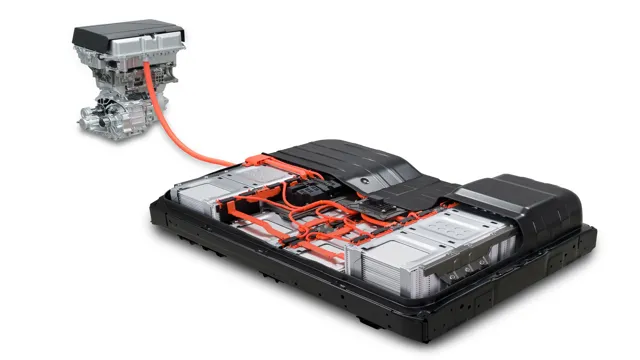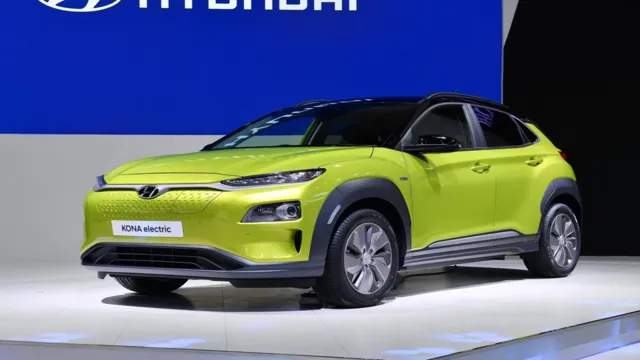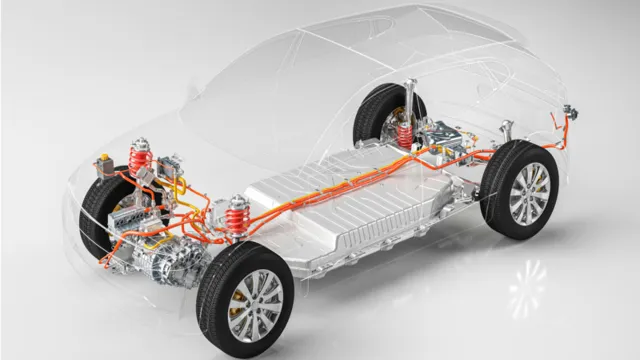Breaking the Myth: Do Electric Car Batteries Really Have Memory?
Are you wondering about the capabilities of electric car batteries and their tendency to develop memory? You’re not alone! With the rise of electric cars and their environmental benefits, comes a lot of talk about the technology behind them. One term that gets thrown around is “battery memory,” which refers to a phenomenon that can affect the performance of rechargeable batteries over time. But what exactly is electric car battery memory, and how does it impact the longevity and efficiency of these vehicles? Let’s dive in and explore the intricacies of this topic.
Introduction
Do electric car batteries have memory? This is a common misconception among many car owners. The truth is, electric car batteries do not have memory like the older nickel-cadmium batteries. The memory effect was a common issue in the past when you had to fully discharge a battery before charging it again.
This resulted in a decrease in battery performance and overall lifespan. However, electric car manufacturers use lithium-ion batteries that do not experience this effect. Lithium-ion batteries have a high energy density and can store energy for prolonged periods with minimal degradation.
Overall, electric car batteries do not have memory, and you do not have to worry about fully discharging the battery before recharging it. Simply plug in your electric car whenever it is convenient for you, and the battery performance will remain unaffected.
Defining Battery Memory
Battery memory is a term that is commonly used to describe the supposed phenomenon where rechargeable batteries lose their ability to hold a charge over time. This can be a frustrating experience for those who rely on these batteries for their portable electronic devices. However, it is important to note that battery memory is actually a myth.
The term was coined to describe the situation where certain types of rechargeable batteries, such as those used in early laptops and phones, appeared to “remember” their charge levels. This was due to a flawed charging technique called “topping off,” which caused the batteries to lose their full charging capacity over time. Nowadays, modern rechargeable batteries no longer suffer from this issue, making the concept of battery memory obsolete.

How Battery Memory Affects Performance
Battery memory can affect the performance of your devices in a big way. When we talk about battery memory, we refer to the ability of a battery to remember how much charge it had and its capacity. Lithium-ion batteries, which are commonly used in smartphones, tablets, laptops, and other electronic devices, are prone to this phenomenon.
When you repeatedly charge your battery before it fully discharges, it “learns” to only offer the amount of power it thinks it needs to consume, which results in performance drops and shorter lifespan. In other words, the battery memory impacts the battery’s overall health and performance and can often result in unexpected shutdowns and diminished life. It’s important to understand how battery memory works and how you can avoid its negative effects to keep your devices functioning properly.
Electric Car Batteries and Memory
“Do electric car batteries have memory?” is a common question that pops up when discussing these environmentally-friendly vehicles. The answer is no, they do not have memory like the rechargeable batteries in our everyday devices. This is because electric car batteries are made with lithium-ion cells that do not suffer from a “memory effect”.
However, it’s essential to point out that electric car batteries can lose capacity over time due to regular use, extreme weather conditions, their chemistry, and other factors. This deterioration is known as battery degradation. Electric car owners can prolong battery life and maintain capacity by following best practices like avoiding fast charging, parking in the shade, and maintaining optimal charge levels.
Although electric car batteries are generally long-lasting, they still require proper care and maintenance to ensure they function optimally and deliver the best performance.
Types of Electric Car Batteries
When it comes to electric cars, the battery is the most crucial component. The type of battery that is used can vary between different electric car models. One important aspect to consider when it comes to electric car batteries is their memory.
Unlike the human brain, the memory of electric car batteries is not a good thing. Memory effect is a process that occurs when a battery is not fully discharged before being recharged. This can cause the battery to remember the amount of charge that it received and eventually lead to decreased battery life.
However, many modern electric cars use lithium-ion batteries that are less prone to memory effect. So, when considering purchasing an electric car, it is important to research the type of battery that is used and whether or not it is susceptible to memory effect.
Memory and Lithium-Ion Batteries
When it comes to electric cars, battery capacity is key to their efficient operation. Lithium-ion batteries have emerged as the dominant technology for electric vehicles, but they are not immune to a phenomenon called “memory.” Battery memory refers to a situation in which the battery retains less energy capacity over time when it is frequently charged and discharged to the same level.
This problem occurs more often with nickel-based batteries than with lithium-ion batteries, but it can still affect electric vehicles’ performance. Some ways drivers can avoid battery memory are by not repeatedly charging the battery to full capacity or discharging it down to zero. However, modern lithium-ion batteries have become smarter and can offset any memory that might occur through regular charging and discharging.
Even though memory is a concern, lithium-ion batteries still remain the best choice for electric vehicles as they outperform other types of batteries in terms of their lifespan and capacity.
Memory and Nickel-Metal Hydride Batteries
When it comes to electric cars, the type of battery used plays a significant role in the vehicle’s performance and lifespan. Nickel-metal hydride (NiMH) batteries have been widely used in hybrid and electric cars because of their high energy density and low cost. However, one potential issue with NiMH batteries is the possibility of memory effect.
When a NiMH battery is repeatedly charged and discharged to the same capacity, it can cause the battery to “remember” that specific capacity and restrict its ability to hold more charge. This memory effect can decrease the battery’s overall capacity and even reduce its lifespan. To avoid memory effect in NiMH batteries, it’s recommended to fully charge and discharge them regularly and avoid consistently charging to a specific point.
Keeping your electric car’s battery at its optimal capacity is important for maintaining its performance and longevity.
Electric Car Battery Maintenance
When it comes to electric car battery maintenance, a common question people have is whether or not these batteries have memory. Unlike the old nickel-cadmium batteries, modern lithium-ion batteries used in electric cars do not have memory effect. The memory effect refers to a phenomenon where a battery becomes less effective at holding its charge if it’s repeatedly charged before being fully depleted.
This is not an issue with lithium-ion batteries, which means they don’t require any special maintenance or conditioning. However, like any battery, they will eventually degrade over time and use. It’s important to follow the manufacturer’s recommendations for charging, discharging, and storing the battery to ensure it lasts as long as possible.
Overall, electric car batteries are designed to be low-maintenance and user-friendly, making it a great choice for those looking for a cost-effective and eco-friendly mode of transportation.
Preventing Battery Memory
Electric car batteries are a vital component of electric vehicles, and proper maintenance is crucial to ensure they function at peak performance. One issue that often plagues rechargeable batteries is memory effect, which occurs when a battery is repeatedly recharged without being fully discharged. Over time, this can lead to a reduction in battery capacity and performance.
To prevent this, it’s recommended to fully discharge your electric car battery once a month and avoid short recharge cycles. It’s also important to store your battery at room temperature and avoid exposing it to extreme heat or cold to prevent damage. By following these simple maintenance tips, you can help prolong the life of your electric car battery and keep your vehicle performing at its best.
Battery Conditioning
Battery conditioning is a critical aspect of electric car battery maintenance. It involves optimizing the battery’s performance and extending its lifespan. By conditioning your battery regularly, you can prevent potential issues such as reduced range and increased charging time.
Although most electric vehicles come with advanced battery management systems, it is still recommended to condition your battery occasionally to ensure that it is performing at its best. One effective way to condition the battery is to drive the car until the battery level is below 20%, then charge it back up to 100%. This process ideally should be done once a month to keep the battery in good condition.
Maintaining your electric car battery is crucial for its longevity and performance, so make sure to keep up with your battery conditioning routine to get the most out of it.
Conclusion
In the end, the question of whether electric car batteries have memory is a bit like asking if a goldfish can remember where he left his keys. While battery memory was a concern in previous generations of batteries, modern-day lithium-ion batteries used in electric cars have been engineered to avoid this problem. So no, your electric car’s battery won’t have a memory in the traditional sense, but it will remember to keep your car running smoothly, quietly, and with zero emissions.
“
FAQs
What is meant by battery memory in electric cars?
Battery memory is a phenomenon that occurs when a battery is not fully charged or discharged, causing it to “remember” the incomplete charge cycle and reduce its overall capacity.
Do electric car batteries have memory?
Some older electric vehicle models may have experienced memory degradation, but modern lithium-ion batteries do not suffer from this issue. As long as the battery is not regularly charged only partially, it should not develop memory.
Can overcharging an electric car battery cause memory loss?
Overcharging an electric car battery can cause it to degrade faster due to increased stress on the cells, but it does not lead to memory loss. Memory loss is typically only seen in older lead-acid batteries and is not a concern for modern lithium-ion batteries.
How can I optimize the lifespan of my electric car battery?
To optimize the lifespan of your electric car battery, avoid regularly charging it to 100% or discharging it below 20%. It’s also recommended to use a level 2 charger instead of a level 1 charger, which can cause more significant wear and tear on the battery over time.





